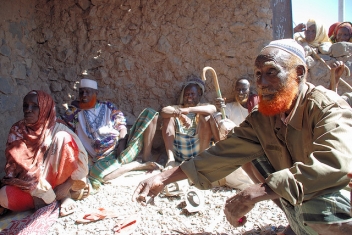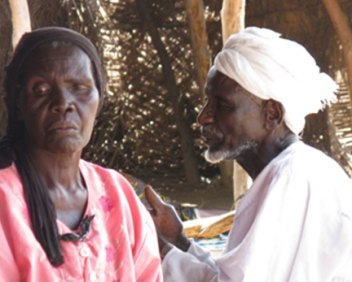I read with relief and joy that the aidworker, Frans Barnard, working for Save the Children, has been freed by Somali gunmen.
Two things immediately struck me from the article “Somali gunmen release British hostage” by Mustafa Haji Abdinur posted on Yahoo world news. The first is that we, humanitarian aid workers, are working in increasingly dangerous environments at risk of attack or capture by various protagonists when the humanitarian principles, code of conduct and humanitarian laws that we abide by no longer seem to offer the protection they did in the past.
Elders negotiated release
 And yet it is precisely in these high risk conflict zones where our skills and experience are brought to bear in order to respond expediently to the suffering of civilian populations trapped in the fighting. If we don’t go and respond, who will? And won’t things be worse if we are not there?
And yet it is precisely in these high risk conflict zones where our skills and experience are brought to bear in order to respond expediently to the suffering of civilian populations trapped in the fighting. If we don’t go and respond, who will? And won’t things be worse if we are not there?
The second is, and I’m grateful to Anna Ford, spokewoman for Save the Children, for raising this point, that clan elders were directly involved in negotiating Mr Barnard’s release and gave him protection.
Strong and fragile
In my four years experience of working for HelpAge International as a relief worker, I’ve met and talked with many older women and men living through some of the most challenging emergencies in the world. They are the survivors. They know how to deal with risky, life threatening situations because, more often than not, they have lived through them before.
They are the protectors – of grandchildren left behind when their parents were lost in the fight, or sick adults who can no longer work, or their neighbours who need shelter. They are leaders, bearing wisdom and grace and cultural mores which have shaped communities through the ages. They are the peacemakers. But do we naturally seek them out and ask for their guidance in a crisis?
Before I go on, I must say that it is indeed true that older women and men can be very vulnerable in emergency situations. A strong theme of HelpAge’s work in emergencies is to work with other humanitarian actors to ensure that the specific needs and vulnerabilities of older people are included in humanitarian response. However, older women and men are not to be viewed only as ‘victims’. What about their contributions and capabilities?
“Peace is like milk”
I remember with a smile a feisty debate my colleagues and I had with older women and men from the Issa tribe in Lashada, a town which is really an IDP (internally displaced persons) camp in the middle of a desert in Somali regional state, Ethiopia. We raised the question about the role of older women and men in  emergencies.
emergencies.
The older men were quick to explain that in their culture, when conflict arises between pastoralist tribes, they send an older female representative of their community to the opposing tribe to begin negotiations for a peaceful resolution to the dispute. When asked about the risks to the older women, they said that it is not in their culture or the culture of the neighbouring tribe to attack older women.
Surprised at the matter of fact statement, we asked the older women how they felt about this. With a nonchalant shrug, one replied “it is our way” and another responded with a local proverb: “Peace is like milk, it is sweet and milk is the best thing valued in life. If there is no peace there is no milk and if there is no milk there is no life”.
Community mediation
In West Darfur, it is the older men who engage in a local judicial system called ‘judia’ where they bring together community elders to discuss problems, mediate conflict and resolve disputes.
While on secondment to the UNHCR protection unit in Osh, Kyrgyzstan in July thi year, I had the privilege to meet older people who, having lived through a brutal period of conflict a few weeks previously, were keen to tell me their story.
One older man explained that earlier that month residents of villages in Karasuu Rayon brought together Uzbek and Kyrgyz community members together in reconciliation meetings. Apparently, 9,730 people from 16 villages took part in these meetings from both of the communities, most of whom were older people, imams and local village government representatives including commandants. Following this example further peacemaking measures were planned at oblast level.
“Thank God for older people in a crisis”
As I am writing this article, while on assignment in Colombia, I bring to mind the many ways older people are engaged in protection activities around the world. From the grandmother caring for vulnerable grandchildren in Congo, to the older man who builds a shelter for his blind neighbour in Darfur, to the community elders striving for peace in Ethiopia and Kyrgyzstan.
And not forgetting the lively and compassionate older women and men in Colombia, who, forcibly displaced from their home villages to a large city, welcome newly displaced people into communities of support every Thursday morning with music, dancing and a healthy dose of practical advice.
I say, “Thank God for older people in a crisis”. Age helps.
Read more about HelpAge’s work with older people in emergencies.
